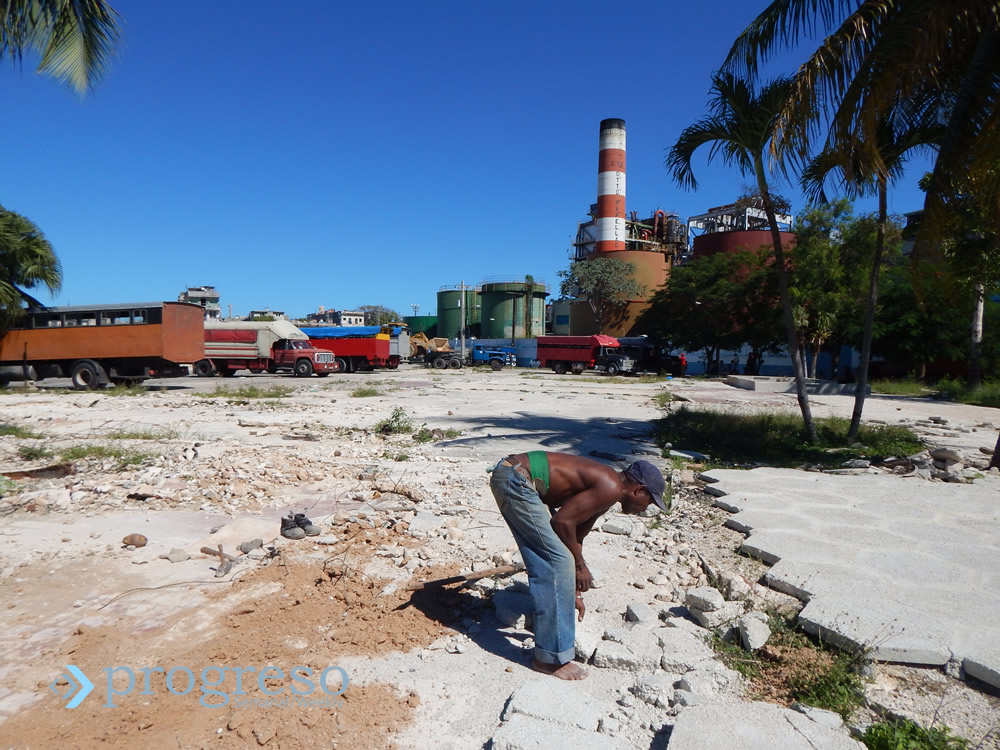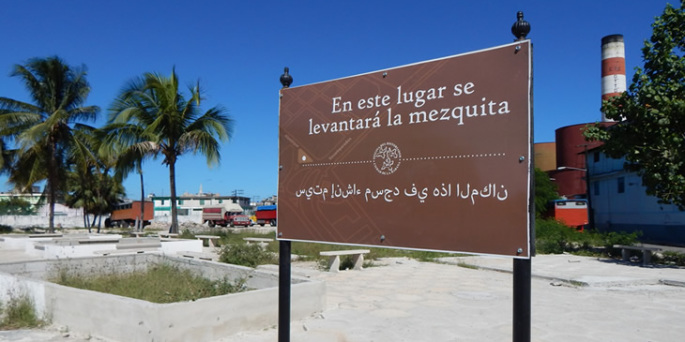
Timetable for a mosque in Cuba
HAVANA — One day in late September, five Cubans boarded the Havana-to-Paris flight. The French capital was not their destination; only a stopover on the way to the Arab world. They were neither military personnel nor doctors on a mission. They were fervent believers traveling to Saudi Arabia to observe the “sacred duty” of every Muslim.
“It was the first time that Cubans living on the island could make a pilgrimage to Mecca,” says a devout follower of Muhammad who added the name “Yahya” (the Arabic word for John) to his Spanish name: Pedro Lazo Torres. As president of the Islamic League of Cuba, but above all as a promoter of the faith, Lazo was one of the five travelers and lived the experience of profound spiritual realization.
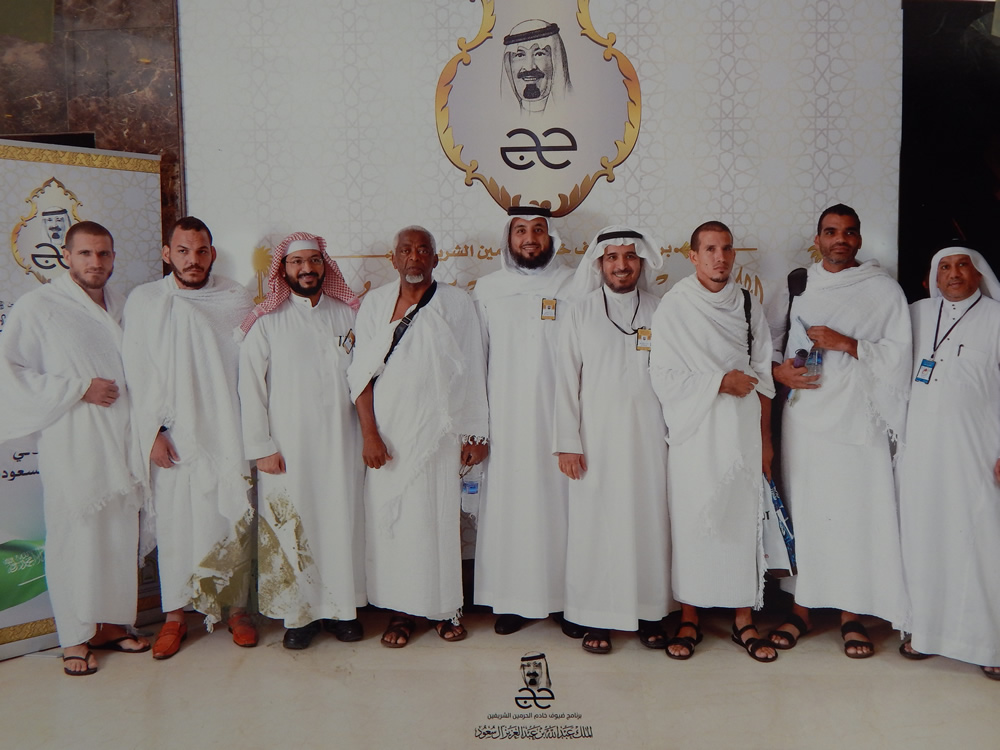 The trip to the sacred cities of Medina and Mecca, plus the printing and delivery of some copies of the Koran, might not be the only contribution made by the Kingdom of Saudi Arabia to Muslims in Cuba. There is another hope, nurtured for years, that awaits resources, advice and decisions to be materialized.
The trip to the sacred cities of Medina and Mecca, plus the printing and delivery of some copies of the Koran, might not be the only contribution made by the Kingdom of Saudi Arabia to Muslims in Cuba. There is another hope, nurtured for years, that awaits resources, advice and decisions to be materialized.
The project continues
The construction of Cuba’s first mosque is still a wish that, if consummated, will consecrate a symbol of religious diversity and the recognition of a minority that is gradually gaining space on the island.
According to historian Michael Cobiella, a researcher in the Fernando Ortiz Foundation, the existing religious communities do not derive from the migration in the early 20th Century. By then, 80 percent of the Arabs living in Cuba were Maronite Christians from Lebanon, Syria and Palestine.
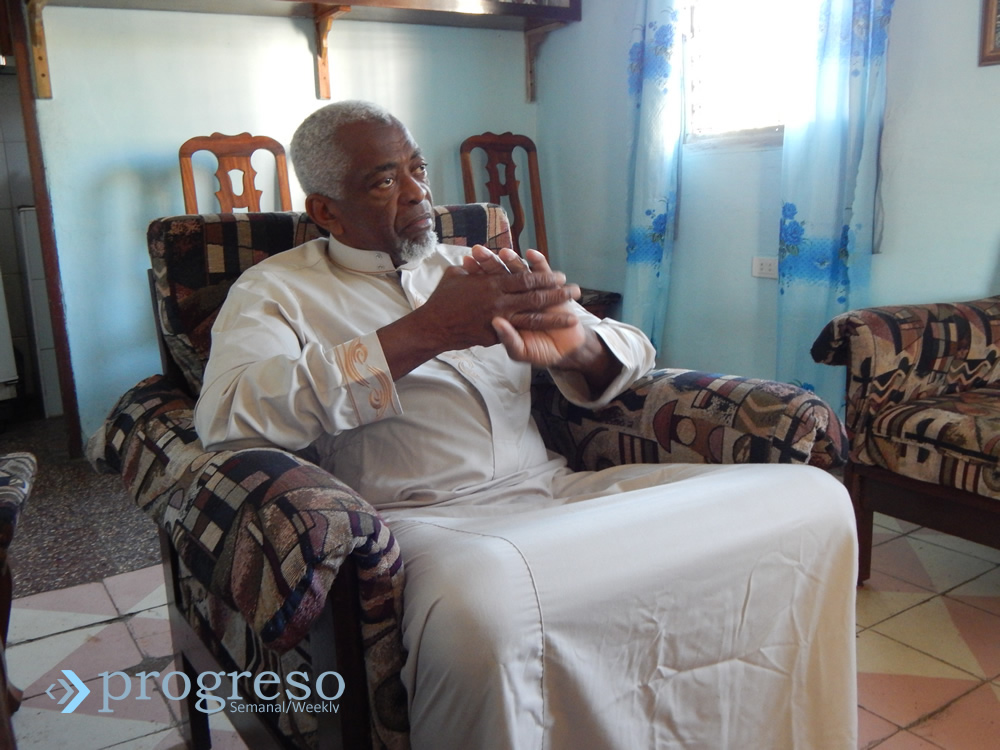 Most of today’s Cuban Muslims are “conversos” [converts], numbering between 3,500 and 8,000. They form a congregation that is not satisfied with praying in private homes or the spaces temporarily ceded to them by some museums or the Arab Union of Cuba, a social — not religious — organization.
Most of today’s Cuban Muslims are “conversos” [converts], numbering between 3,500 and 8,000. They form a congregation that is not satisfied with praying in private homes or the spaces temporarily ceded to them by some museums or the Arab Union of Cuba, a social — not religious — organization.
“There is an architectural project for the mosque, already designed. I have seen it and the site is marked off by a sign,” says Lazo Torres, referring to a large esplanade adjacent to the Tallapiedra thermo-electrical plant, on Avenida del Puerto, Old Havana.
In early October, some media stated that the Cuban government had cancelled the construction, citing alleged statements by Lazo Torres. In an interview with Progreso Weekly, he denied making them. “I didn’t say that to anyone,” he said.
“The willingness to build a house of prayer still exists, and we hope that it will benefit the entire community, not only the faithful. We believe that the facility should have an activities center where the municipality itself can hold meetings. In addition, it should have a dining hall, where we could feed people with disabilities, and a parking lot and overnight housing, because many faithful will come from other places,” says Lazo Torres.
“The building should avoid the problems that other newly built churches have run into, such as the Greek Orthodox Church, where auxiliary services are hard to find. We don’t want to encounter obstacles tomorrow,” he says.
At a time when the mosque’s cornerstone still hasn’t been laid, that’s valuable advice.
The Office of the Havana Historian is in charge of the work, according to the sign on site. Some movement has been noticeable recently, but the only construction worker on the day we walked to the site could not confirm to us whether a park or a mosque was under construction.
“We were laying out concrete slabs and benches, along with some flower planters, but some people came over and erected that sign. I don’t know what will happen next,” he said.
For the time being, the space is being used as a parking lot for the 20 or so trucks that carry travelers to the eastern provinces from the nearby La Coubre terminal.
From Istanbul to Havana
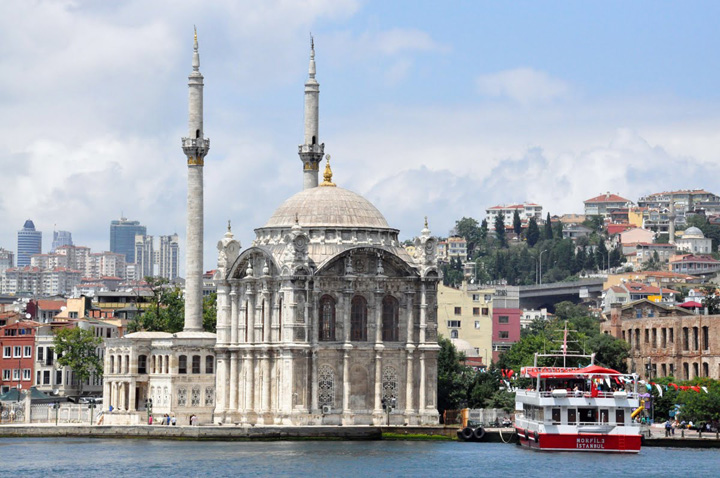 “Every Muslim wants to build a mosque, because there is a huge reward in heaven for the effort. The Cuban government years ago told us it was willing to donate a building of this kind and we were pleased by the offer, because the government will also receive its reward. We ourselves would like to participate in the construction, so we could have our reward,” says Imam Lazo Torres.
“Every Muslim wants to build a mosque, because there is a huge reward in heaven for the effort. The Cuban government years ago told us it was willing to donate a building of this kind and we were pleased by the offer, because the government will also receive its reward. We ourselves would like to participate in the construction, so we could have our reward,” says Imam Lazo Torres.
“All Islamic countries wish to contribute to this project. Some of those countries have offered to build the mosque by themselves, from the ground up,” Lazo Torres says, apparently referring to Turkey, whose Religious Affairs Foundation (Diyanet) sent a delegation to the Cuban capital in March 2014.
At that time, the terms and permits for the construction of a building patterned after Istanbul’s famous Ortaköy Mosque were allegedly agreed upon. But, according to Lazo Torres, that report is not precise. “To my knowledge, no accord or no commitment was made,” he assures us.
From the Turkish capital, the vice president of Diyanet, Mustafa Tutkun, throws light on his country’s participation in the project.
“It all began when we visited Haiti on a humanitarian mission,” he said. “We were in communication with the Muslims in Cuba and they mentioned the idea of the mosque. Then we offered to contribute and the Cuban authorities invited us to visit them. We visited Havana and saw the grounds chosen for the mosque and said that we were willing to sponsor the project in its entirety.”
“Diyanet has offered to build the mosque in historical style, with a Baroque design, and we’re ready to cover all expenses. But the Cuban authorities are planning to bring aboard as many Muslim countries as possible. We are waiting for them before taking any action. To us, building the mosque is the important part; who builds it is secondary,” Tutkun says.
That opinion echoes that of the Cuban ambassador in Ankara, Alberto González Casals, who, according to an interview published April 19 by the Anatolian Agency, said that Cuba was “delighted” by Diyanet’s offer. “Proposals to build mosques in Havana have come not only from Turkey but also from other countries,” the diplomat said, without identifying them.
One day later, on April 20, the Turkish newspaper Emlak Kulisi published an article titled “Turkish religious foundation will build a mosque in Cuba,” that was reprinted by several media sites. But after that, the topic faded, giving rise to rumors.
“Some Cubans and Turks were annoyed when they heard about a mosque in Havana,” Tutkun says. “The Cubans I can understand, but it puzzles me why some Turkish media couldn’t deal with the affair and fabricated false or wrong reports. We have very good relations with the Cuban authorities; they keep us informed at all times. They visit us and we visit them.”
Lazo Torres is similarly optimistic. “I don’t think that any difficulty exists, because there is much willingness and interest on the part of many individuals and institutions to bring this work to completion.”
But, beyond the good wishes and a fluent communication, it seems that many days remain until a house of prayer suitable for Allah’s faithful is built in Havana. Then, from the tropical sounds of Old Havana, the muezzin’s calls to prayer will rise to the skies.
[Felipe Pagliery contributed to this report.]

